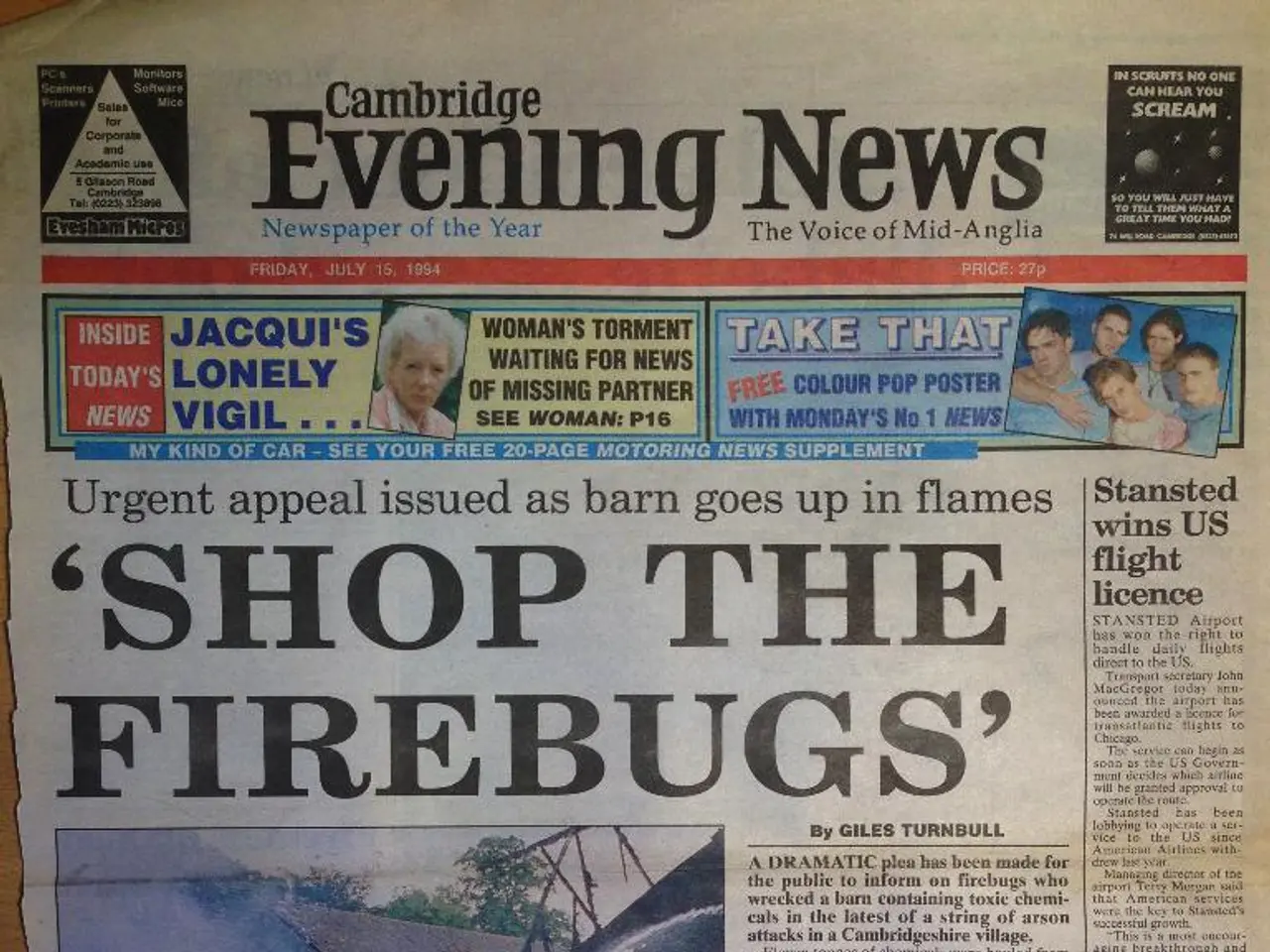Public Broadcasting Corporation set to discontinue operations following funding withdrawal by Congress, under attack by Trump
The Corporation for Public Broadcasting (CPB), a vital supporter of public radio and TV stations across the United States, is set to wind down its operations following the elimination of its federal funding by Congress and the Trump Administration. This marks the first time in over 50 years that the CPB has faced such a shutdown [1][2][4].
The immediate consequence for local stations, particularly in small and often rural areas, is significant financial burdens. CPB has traditionally provided direct grants to these stations, negotiated collective music licensing fees more cost-effectively, and supported critical infrastructure like the public media interconnection system that distributes emergency alerts [3]. With CPB closing, these costs now fall directly onto local stations' already strained budgets, threatening the viability of stations that rely heavily on this support.
The loss of CPB funding and infrastructure jeopardizes the smaller stations' ability to operate effectively, diminishing the availability of public media content in many communities. Some stations have seen a surge in public donations following the announcement, indicating community support, but this may not be sufficient to fully offset the loss of federal funding and CPB-managed resources [2].
The CPB has deep ties to much of the nation's most familiar programming, including NPR's "All Things Considered," "Sesame Street," "Mister Rogers' Neighborhood," and the documentaries of Ken Burns [5]. While major national programs such as NPR’s Morning Edition and PBS NewsHour will not end immediately, the loss of CPB funding and infrastructure could impact their long-term sustainability.
The CPB's demise represents a political victory for those who have long argued that public broadcasting displays an extreme liberal bias. Trump, who has called the CPB a "monstrosity," has targeted institutions that he considers "un-American" [7][8]. In April, Trump fired three members of the corporation's board of directors, citing governmental overreach [6].
As the CPB moves towards its closure, a small transition team will remain in place until January to finish any remaining work, including ensuring continuity for music rights and royalties. The Corporation for Public Broadcasting, a cornerstone of American culture for three generations, has played a crucial role in providing diverse and informative content to millions of Americans [9]. Its closure leaves a significant void in the media landscape, particularly in small communities across the United States.
[1] https://www.npr.org/2021/06/18/1009373797/senate-appropriations-committee-excludes-funding-for-cpb-for-the-first-time-in-mo [2] https://www.npr.org/2021/06/18/1009373797/senate-appropriations-committee-excludes-funding-for-cpb-for-the-first-time-in-mo [3] https://www.npr.org/2021/06/18/1009373797/senate-appropriations-committee-excludes-funding-for-cpb-for-the-first-time-in-mo [4] https://www.cnn.com/2021/06/18/politics/corporation-for-public-broadcasting-defunded/index.html [5] https://www.washingtonpost.com/politics/2021/06/18/corporation-public-broadcasting-faces-first-defunding-decades/ [6] https://www.npr.org/2021/06/18/1009373797/senate-appropriations-committee-excludes-funding-for-cpb-for-the-first-time-in-mo [7] https://www.npr.org/2017/01/26/511765287/trump-says-he-will-cut-funding-to-public-broadcasting-npr-and-pbs [8] https://www.npr.org/2017/01/26/511765287/trump-says-he-will-cut-funding-to-public-broadcasting-npr-and-pbs [9] https://www.cnn.com/2021/06/18/politics/corporation-for-public-broadcasting-defunded/index.html
- The financial burden on local stations due to the CPB's closure may hinder their ability to offer education and self-development programs, potentially restricting personal growth opportunities for many individuals.
- In the wake of CPB's closure, the availability of online education resources might decrease, affecting job-search initiatives and career development for those relying on public media content.
- The loss of CPB's support for critical infrastructure like the public media interconnection system may lead to slower response times for emergency alerts and general news updates, impacting mindfulness, productivity, and goal-setting for the public.
- The void left by the CPB's closure in the media landscape could lead to a decrease in informed decision-making and lifelong learning opportunities, as well as a rise in crime and justice-related issues due to the lack of accurate information.
- The closure of the CPB could negatively affect policy and legislation discussions, as it provided diverse perspectives and decreased the risk of biased reporting on crucial topics like war and conflicts.
- The absence of the CPB's support for critical infrastructure could also impact the distribution of emergency alerts, such as car-accident warnings or updates on fires, thus compromising public safety.
- As the CPB's closure impacts the viability of smaller stations, it could result in a shortage of local news, limiting the public's access to updates on community events, political discussions, and general-news stories.
- The loss of CPB funding might put a halt to skills-training programs and documentaries, which contribute to personal and professional development, as well as community engagement.
- The closure of the CPB might lead to a decrease in public radio and TV programming that promotes mindfulness and educational content, which could in turn adversely affect the mental health and overall well-being of many communities.
- The CPB's demise could create a ripple effect in the media landscape, affecting not only policy and legislative discourse but also shaping the public's perception of events, from political debates to entertainment programming, thus influencing the course of American culture and society.




